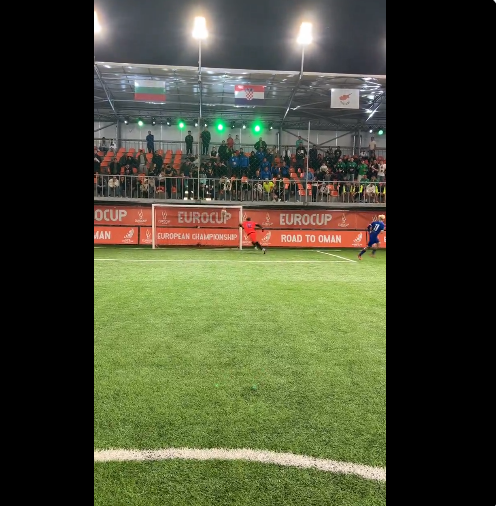Ever since doping was no longer allowed, the East Germans have not done very well up against West Germany.
German reunification occurred in 1990, yet for many former East Germans, it remains a contentious issue. This sentiment is underscored by the distribution of host cities for Euro 2024, taking place from June 14 to July 14. Of the ten host cities, only Leipzig is located in the former East Germany. Even Berlin, where the final is held, is geographically in the former West Berlin, an area once an enclave of capitalism surrounded by the Communist East.
EURO 2024!
GOLDEN TICKET GIVEAWAY!@EuroCup_Inu is giving away a Golden Ticket at the end of the EURO 2024 group stage!– 2 tickets to the EURO 2024 Final on July 14th
– Hotel stay for 2 in BerlinJust bet on all the Euro 2024 games and get a chance to win the "Golden Ticket."… pic.twitter.com/n2R0bQIXsL
— Vince™ (@Blue_Footy) June 5, 2024
Leipzig’s inclusion as a host city is somewhat anomalous given its football history. The Bundesliga team playing in the city’s stadium didn’t exist before 2009, created after Red Bull acquired a local team’s fifth-division license. Contrastingly, North Rhine-Westphalia (NRW) in former West Germany hosts four cities—Dortmund, Gelsenkirchen, Düsseldorf, and Cologne—situated within close proximity of each other, making NRW a dominant region for football and sports in general.
Professor Ansgar Thiel of the German Sports University Cologne attributes NRW’s dominance in sports to favorable demographics, economic strength, infrastructure, and a deeply ingrained sporting culture. These factors have positioned NRW as a regular choice for hosting major sporting events.
More than 30 years after reunification, Eastern Germany still lags behind. In the 2006 World Cup, Leipzig was again the sole host from the former East. The limited presence of Eastern cities in Euro 2024 is largely due to no other Eastern cities besides Leipzig submitting a bid. The German Football Association (DFB) confirmed this, noting that 13 of the 14 cities interested in hosting were from former West Germany.
The stadium seating capacity played a crucial role in the DFB’s decision-making. Leipzig and Gelsenkirchen, each hosting only four matches, have the lowest capacities among the host cities. This factor was decisive in selecting venues for the tournament. Cities like Nuremberg, Hanover, and Mönchengladbach, which bid but were not chosen, have slightly larger capacities.
Despite the logistical feasibility, like Dresden’s proximity to other major airports and its existing infrastructure, concerns such as hooliganism have deterred its consideration as a host city. Dresden’s Rudolf-Harbig-Stadion, although serving a third division team and falling below UEFA’s required capacity, could have been a viable option with modifications, similar to what was done in Belgium for Euro 2000.
Dresden’s Chamber of Commerce remains optimistic, hoping visitors to Leipzig might extend their stay to explore nearby Dresden. The city’s situation highlights a broader issue: Eastern Germany’s continued exclusion from major sporting events, despite attempts by the DFB and UEFA to include Leipzig more centrally in Euro 2024 activities, such as hosting the International Broadcast Centre and a pre-tournament training camp.
Looking ahead, NRW is also leading bids for future Olympics, potentially for 2036 or 2040, supported by its robust sports facilities and experience in hosting major events. In contrast, Eastern Germany faces challenges, as hosting would likely require significant new construction. This ongoing imbalance reflects broader regional disparities that have persisted long after Germany’s political reunification.
Major Points
- Euro 2024 is hosted by ten German cities, but only Leipzig represents the former East Germany, reflecting ongoing regional disparities since reunification in 1990.
- North Rhine-Westphalia (NRW) dominates as a sports hub, hosting four of the ten cities due to its favorable demographics, economy, and strong sporting culture.
- The selection of host cities by the German Football Association (DFB) heavily favored those in the former West Germany, with stadium capacity playing a crucial role.
- Despite its potential, Dresden was not chosen as a host city for reasons including concerns about hooliganism and insufficient stadium capacity, although it could have been upgraded like venues for Euro 2000.
- Looking forward, NRW is a frontrunner for future major sporting events like the Olympics, while Eastern Germany struggles with lesser sports infrastructure and investment.
RM Tomi – Reprinted with permission of Whatfinger News



